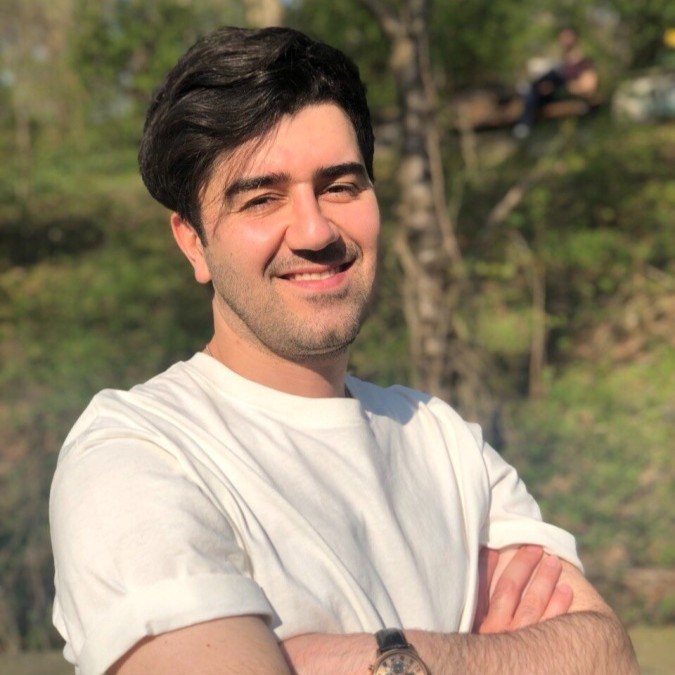
Saeed Ghoorchian
I am a machine learning scientist at SAP. In 2023, I received a Ph.D. from the University of Tübingen. During 2023-2024, I held postdoctoral positions at the University of Tübingen and Ruhr-University Bochum, and worked as an AI researcher at SAP Signavio. My research interests include reinforcement learning, imitation learning, representation learning, and causality in LLMs.
News
- April, 2025 Our paper 'Non-Stationary Delayed Combinatorial Semi-Bandit With Causally Related Rewards', is out in the IEEE Open Journal of Signal Processing.
- March, 2025 A preprint of our recent paper, "Quantum-Inspired Reinforcement Learning in the Presence of Epistemic Ambivalence", is available 'here'.
- June, 2024 I’m starting a new position as Machine Learning Scientist at SAP.
- April, 2024 Our paper 'Contextual Multi-Armed Bandit with Costly Feature Observation in Non-stationary Environments', has been accepted for publication at the IEEE Open Journal of Signal Processing.
- March, 2024 Our paper 'Non-stationary Linear Bandits with Dimensionality Reduction for Large-Scale Recommender Systems', has been accepted for publication at the IEEE Open Journal of Signal Processing.
- August, 2023 I joined SAP as a visiting researcher.
- April, 2023 I successfully defended my PhD thesis titled "Online Learning under Partial Feedback" with magna cum laude. 🎉
- September, 2022 I will be Teaching Assistant for the course Introduction to Game Theory with Application in Multi-Agent Systems during the winter semester at the University of Tübingen.
- July, 2022 Presented our accepted paper at IJCAI 2022 in Vienna.
- June, 2022 Joined the Decision Making group at the University of Tübingen as a research assistant.
- May, 2022 Starting a freelance consultant position at Datalyze Solutions GmbH, Germany.
- April, 2022 Our paper "Linear Combinatorial Semi-Bandit with Causally Related Rewards" has been accepted for publication at the 31st International Joint Conference on Artificial Intelligence (IJCAI).
- November, 2021 Excited to serve students as Teaching Assistant at the University of Tübingen.
- September, 2021 Our paper "Data-Driven Online Recommender Systems with Costly Information Acquisition" has been accepted for publication at the IEEE Transactions on Services Computing (TSC).
Publications
Saeed Ghoorchian and Setareh Maghsudi
IEEE Transactions on Cognitive Communications and Networking (TCCN), 2020
Data-Driven Online Recommender Systems with Costly Information Acquisition
Onur Atan, Saeed Ghoorchian, Setareh Maghsudi, and Mihaela van der Schaar
IEEE Transactions on Services Computing (TSC), 2021
Linear Combinatorial Semi-Bandit with Causally Related Rewards
Behzad Nourani-Koliji*, Saeed Ghoorchian*, and Setareh Maghsudi.
International Joint Conference on Artificial Intelligence (IJCAI), 2022
Bayesian Non-stationary Linear Bandits for Large-Scale Recommender Systems
Saeed Ghoorchian, Evgenii Kortukov, and Setareh Maghsudi
IEEE Open Journal of Signal Processing (OJSP), 2024
Online Learning with Costly Features in Non-stationary Environments
Saeed Ghoorchian, Evgenii Kortukov, and Setareh Maghsudi
IEEE Open Journal of Signal Processing (OJSP), 2024
Non-Stationary Delayed Combinatorial Semi-Bandit With Causally Related Rewards
Saeed Ghoorchian, Steven Bilaj, and Setareh Maghsudi
IEEE Open Journal of Signal Processing (OJSP), 2025
Quantum-Inspired Reinforcement Learning in the Presence of Epistemic Ambivalence
Alireza Habibi*, Saeed Ghoorchian*, and Setareh Maghsudi
Under review, 2025
Robust Inverse Reinforcement Learning under State Adversarial Perturbations
Mine Melodi Caliskan, Saeed Ghoorchian, and Setareh Maghsudi
Under review, 2025